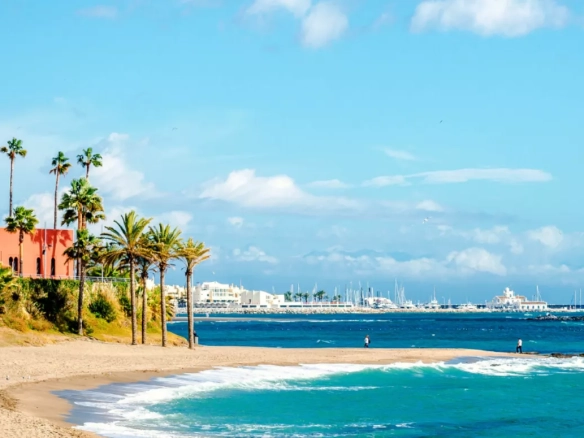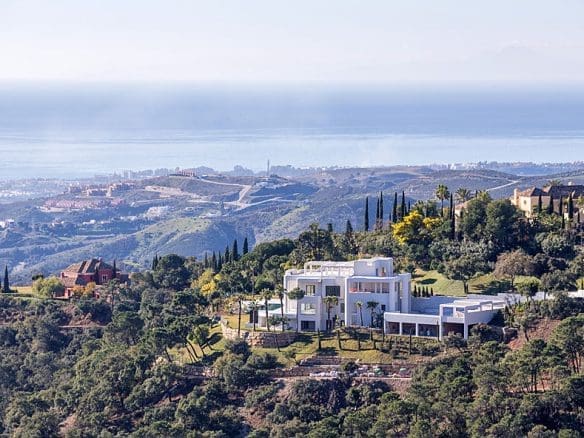The first step when you find a property you want to buy is to formulate a written offer and make a good faith deposit. This deposit varies depending on the property price and other factors.
Your sales agent can inform you of the exact amount based on the property of interest. If your formal offer is accepted and signed by the seller, it becomes a reservation agreement, and the property is taken off the market. The reservation agreement will set the conditions and terms for the next contract.
- FORMAL OFFER AND PRIVATE PURCHASE AGREEMENT (CONTRATO PRIVADO DE COMPRAVENTA)
This is a simple agreement between the buyer and seller, where the seller agrees to sell the property, and the buyer agrees to buy the property at the agreed price.
The private Arras Contract (Contrato privado de arras) will include all relevant details, such as the property description, purchase price, payment structure, and completion date.
At this stage, the buyer is expected to make an initial payment, usually deposited into the seller’s bank account, representing around 10% of the agreed purchase price, though this amount can vary.
The private Arras Contract usually contains a clause stating that if the seller decides to withdraw from the sale, the buyer is entitled to receive double the amount paid as a deposit as compensation, while if the buyer decides to withdraw, the deposit is forfeited.
Before signing the contract, due diligence checks will be carried out regarding the legal and technical details of the specific property.
- COMPLETION OF THE PUBLIC DEED OF SALE (ESCRITURA DE COMPRAVENTA)
On the completion day, the balance of the purchase price (the sale price minus any amounts paid to date) must be paid.
The seller and buyer then sign the public deed of sale (Escritura de compraventa), which serves as the property title deed.
The buyer is then issued the public deed of sale in front of a public notary, who certifies the transfer of the property, and a copy of the public deed is sent to the Spanish tax office and the property registry.
WHAT ARE THE COSTS INVOLVED IN PURCHASING A PROPERTY?
- PURCHASING A NEW PROPERTY FROM A DEVELOPER
VAT (IVA, Impuesto sobre Valor Añadido) applies. VAT and AJD apply to residential properties that have not been previously inhabited and to land plots. VAT is a national tax that does not vary based on the property’s location (except in the Canary Islands). Currently, VAT is 10% of the purchase price for new residential properties (villas, apartments, etc.) and 21% for land plots. - PURCHASING A SECOND-HAND PROPERTY FROM AN INDIVIDUAL
Transfer tax (ITP, Impuesto sobre Transmisiones Patrimoniales) applies. This tax is applied to the purchase of a second-hand property that has been previously used. The general rate of ITP varies by region, ranging between 6% and 11%; on the Costa del Sol, it is 7%. - LAWYER FEES
The lawyer fee is 1% + VAT of the transaction value. - NOTARY FEES AND LAND REGISTRATION COSTS
These fees vary depending on the purchase price and the complexity of the deed.
STEPS TO PURCHASE A PROPERTY IN SPAIN
- PURCHASING A NEW PROPERTY FROM A DEVELOPER
Local taxes are calculated based on the cadastral value (valor catastral) of the land assigned by the Spanish tax office. It is recommended to check the annual local rates for a property before purchasing, as they vary by region. Your sales agent can inform you of the exact taxes for a specific property. - COMMUNITY FEES
Community fees apply only when purchasing an apartment or house within a community, not when buying an individual home.
Community fees are paid monthly or quarterly and depend on the expenses of the property community (which may include costs for concierge services, lift maintenance, cleaning, gardening, pools, etc.). Your sales agent can inform you of the exact fees for a specific property.
- NON-RESIDENT INCOME TAX (IRNR, IMPUESTO SOBRE LA RENTA DE NO-RESIDENTES)
Non-resident income tax in Spain must be paid if you are not a tax resident in Spain and own property in Spain.
If THE PROPERTY IS FOR PERSONAL USE ONLY AND NOT RENTED OUT, even if you do not earn any income from the property, the Spanish tax authorities still view you as deriving a benefit from owning property in Spain, and therefore, you must pay an annual tax on deemed income. The basis for the applicable tax rate is generally between 0.1% and 0.2% of the property’s cadastral value. The cadastral value of the property is much lower than its market value.
If YOU RENT OUT THE PROPERTY AND THEREFORE PAY TAX FOR THE PERIODS IT IS RENTED OUT, the basis for the applicable tax rate is the income you earn from renting the property.
Various costs can be deducted if you are a tax resident in the European Union. Possible deductions include costs for the administration and maintenance of the property. If you have no other taxable sources of income in Spain, the tax rate is 19% for EU residents and 24% for non-EU residents.
4o




